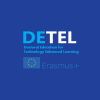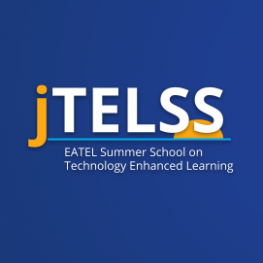Speakers
Bhoomika Agarwal
Open University of the NetherlandsRoland Klemke
Open University of The Netherlands, The Netherlands / TH Köln, GermanyCorrie Urlings
Open University of the NetherlandsStart
27/05/2022 - 16:00
End
27/05/2022 - 17:30
Ethical AI in Education: Aspects, Elements, Technologies and Problems of designing a framework
Friday 27/05 16:00-17:30h
Outdoor Area A
This session is organized by the DETEL Erasmus+ project. 
DETEL is a strategic partnership among nine European universities and EATEL to reflect their expertise in doctoral education into a new study program in TEL, extended with rich and professionally produced OERs.
Abstract
Participants will be introduced to the Ethical issues persistent in AIED and there will be a brainstorm about the repercussions of these issues on the domain. The workshop will introduce aspects of an ethical framework for AI in education and enable participants to identify ethical aspects in the design, development, introduction, and use of AIED systems. Participants learn to distinguish technological aspects of ethical AI from policy-related aspects.
Needs Analysis
AIED is the future of EdTech and holds immense potential. However, immense potential comes with immense responsibility. It is important to be aware of the ethical issues revolving around AIED at the initial phase of development and regulate these technologies at a nascent stage. The wrong usage of technology could impact the lives of millions of young students in a negative manner. This workshop therefore introduces AIED and the ethics revolving around it with an aim to make PhD candidates align their thought process in an ethically sound manner. PhD candidates will be introduced to the domain of AIED and be presented with a list of ethical aspects that need to be kept in mind while designing future AIED technologies. They will be prompted to think about the ethical repercussions of various AIED technologies that are in development. Such a thought process could be extended to their own PhD research to make it ethically sound and responsible.
Learning Objectives
- Participants will be given a list of ethical aspects that need to be kept in mind while designing future AIED technologies and a brainstorming session will be conducted about how to apply these ethical aspects to various applications.
- Participants will be encouraged to think ethically about the projects that will be introduced and their own research projects.
- Participants will reflect on various dimensions of Ethics in AI with respect to different problem situations and different technological approaches used in AI.
Pre-activities
The participants do not need to follow any particular material before the workshop. It would however be helpful, if participants already participated in the introduction workshop on AI in education and visited some of the other AI-related workshops.
Session Description
- Recap: AIED, the different research approaches present at JTELSS, and ethical dimensions in AIED [15 minutes]
a. Privacy
b. Trust and responsibility
c. Fairness and inclusivity
d. Explainability/transparency - Group session 1: identification of potential ethical issues in presented research approaches (and beyond) based on sub-groups formed on the basis of other AIED track workshops attended [15 minutes]
a. Reflection on ethical aspects covered in the introduction workshop.
b. Identification of these (and new) aspects in the presented research approaches - Group session 2: Defining an ethical framework for AI with the full group [45 minutes]
a. Aspects related to the technological design of ethical AIED systems
b. Aspects related to policies/rules/conditions for the use of AI in educations
c. Other ethical aspects of AI in education - Result presentation and conclusion [15 minutes]
Post-activities
- References of the topics will be provided.
- Contact information of the PhD students for future collaboration.
- Group concept mapping as a future activity.



